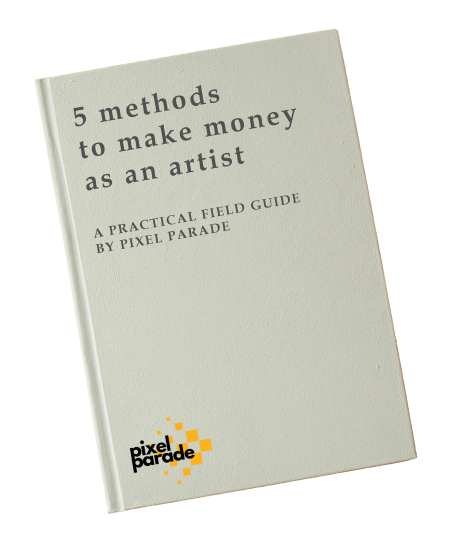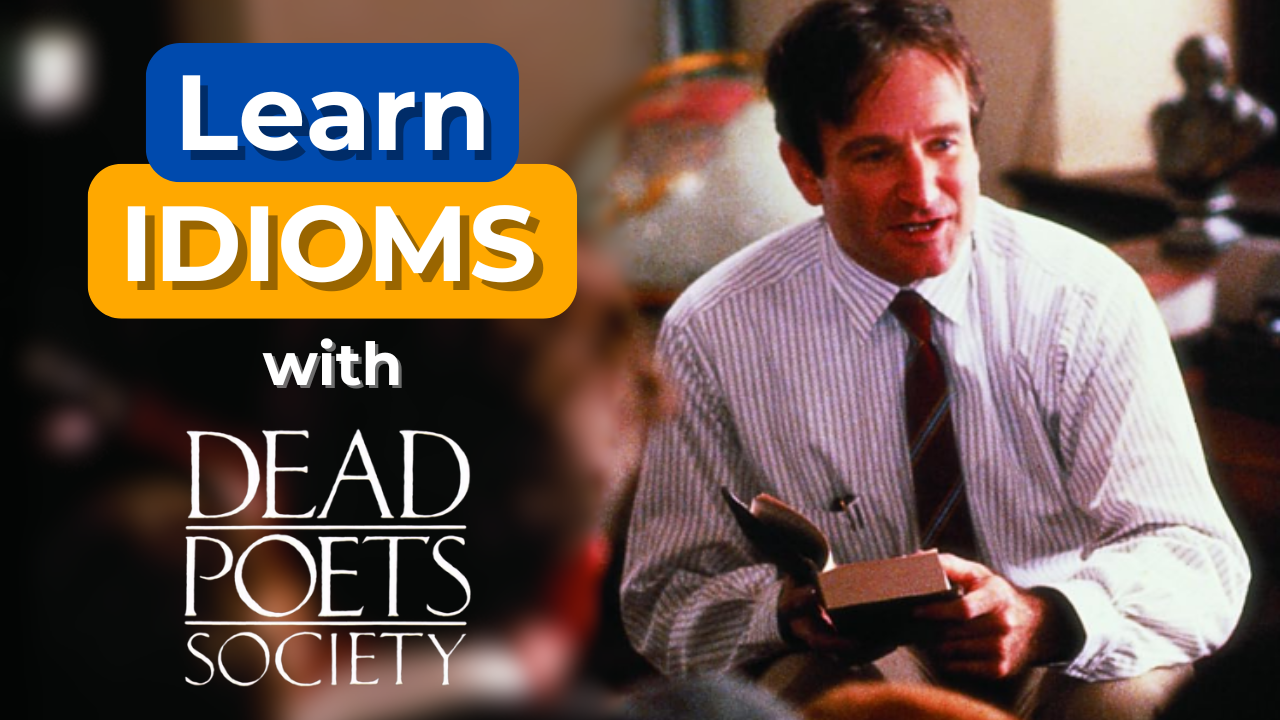To bring this to life, we’re diving into a hilarious scene from Groundhog Day, where Phil, the main character, realizes that nothing he does will have consequences. So what does he do? He throws caution to the wind.
👇 Watch the full video lesson below, then scroll down for the key vocabulary and deeper explanations.
Key Terms from the Groundhog Day Scene
2. Inspiring
4. Cholesterol
5. Love Handles
8. “Unwept, Unhonored, and Unsung”
10. Egocentric
13. Doggie Bag
1) Idiom Spotlight | Throw Caution to the Wind
📖 This idiom means to take a big risk without worrying about what might happen.
💬 “He didn’t have another job, but he threw caution to the wind and quit anyway.”
💬 “She stayed out partying all night even though she had a test in the morning—definitely threw caution to the wind.”
💡 Where does it come from?
The phrase likely comes from sailing, where ignoring the wind could throw a ship off course—or even cause it to sink. Letting the wind take over meant giving up control.
▶️ Watch the YouTube Short below for a quick and fun explanation of the idiom’s origin and how to use it in everyday speech.
2) Inspiring
📖 Something that motivates or excites you to do something positive or meaningful.
💬 “Her speech was so inspiring—it made me want to chase my dreams.”
💬 “That movie inspired me to start painting again.”
💡 In the scene, Rita uses “inspiring” sarcastically. She doesn’t actually think Phil’s behavior is inspiring—she’s making fun of how careless he’s being.
3) Keep It Coming
📖 A casual phrase that means “don’t stop” or “keep giving me more.”
💬 “These fries are amazing—keep them coming!”
💬 “Loving your suggestions. Keep them coming!”
4) Cholesterol
📖 A type of fat in your blood. Some cholesterol is good, but too much can be harmful.
💬 “My doctor says I need to lower my cholesterol.”
💬 “Cutting back on fried foods helps with cholesterol.”
💡 Phil is eating recklessly and jokes that he doesn’t even care about cholesterol anymore.
5) Love Handles
📖 A fun, slang term for extra fat around your waist.
💬 “Time to hit the gym—these love handles are getting out of control!”
💬 “I’m starting to notice some love handles after the holidays.”
💡 Usually used in a humorous or lighthearted way.
6) Floss
📖 To clean between your teeth with dental floss.
💬 “I always forget to floss, and my dentist can tell!”
💬 “Flossing helps prevent cavities.”
💡 In the scene, Phil jokes that he doesn’t even need to floss anymore because nothing matters.
7) “Forfeit fair renown / Doubly dying shall go down”
📖 From a poem by Sir Walter Scott. It means that someone who lives selfishly will lose their good reputation and be forgotten.
💬 “He didn’t leave a positive legacy—he forfeited fair renown.”
💡 A reminder to live a meaningful life that others will remember.
8) “Unwept, Unhonored, and Unsung”
📖 Another line from Sir Walter Scott, describing someone who dies without being mourned, praised, or remembered.
💬 “He lived a quiet life and passed away unwept, unhonored, and unsung.”
9) Willard Scott
📖 A famous American TV weatherman.
💡 The joke in the scene is that Phil confuses him with Sir Walter Scott, the poet. It’s funny because the two couldn’t be more different.
10) Egocentric
📖 Someone who is self-centered and only thinks about themselves.
💬 “He’s so egocentric—he doesn’t care about anyone else’s feelings.”
💬 “Her egocentric attitude makes it hard to work with her.”
💡 Egocentric is not quite the same as egotistical—egotistical implies arrogance, while egocentric means self-focused.
11) Defining Characteristic
📖 The most recognizable trait or quality of a person or thing.
💬 “Her kindness is her defining characteristic.”
💬 “Impatience was his defining characteristic.”
💡 What’s yours? Let us know in the comments.
12) Stay Ahead of the Weather
📖 A metaphor that means to leave early or prepare to avoid bad conditions.
💬 “We left early to stay ahead of the weather.”
💬 “The hikers rushed to camp to stay ahead of the storm.”
13) Doggie Bag
📖 A bag for taking leftover food home from a restaurant.
💬 “Can I get a doggie bag for the rest of my pasta?”
💬 “She always takes home half her meal in a doggie bag.”
💡 The name suggests it’s for a dog—but let’s be honest, most people eat the leftovers themselves!
14) Grow on Me
📖 When something starts to become likable over time.
💬 “At first I didn’t love the show, but it grew on me.”
💬 “This new band is growing on me.”
15) Quit
📖 A strong way to say stop doing something.
💬 “Quit talking during the movie!”
💬 “Quit tapping your foot—it’s distracting.”
💡 Common in American English: “Quit it!” means “stop it!”
16) Bon Appétit
📖 A French phrase meaning “Enjoy your meal!”
💬 “Dinner is ready—bon appétit!”
💬 “Bon appétit, everyone!”
Wrap-Up
We’ve explored a bold idiom—throw caution to the wind—and learned loads of practical expressions along the way.
Use this idiom when someone takes a leap, takes a risk, or stops caring about the consequences. It’s bold. It’s vivid. And now you know exactly how to use it.
If you enjoyed this lesson, like, subscribe, and share with your fellow English learners. We post a new lesson every week, using real scenes from iconic movies and shows to help you:
✨ Read between the lines
🎙️ Talk the talk
👂 And sharpen your ears
Thanks for watching and see you in the next one!
Free download!
5 methods to make money as an artist





